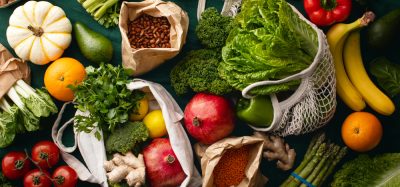Arkansas researchers examine pecan safety measures ahead of Thanksgiving feasts
- Like
- Digg
- Del
- Tumblr
- VKontakte
- Buffer
- Love This
- Odnoklassniki
- Meneame
- Blogger
- Amazon
- Yahoo Mail
- Gmail
- AOL
- Newsvine
- HackerNews
- Evernote
- MySpace
- Mail.ru
- Viadeo
- Line
- Comments
- Yummly
- SMS
- Viber
- Telegram
- Subscribe
- Skype
- Facebook Messenger
- Kakao
- LiveJournal
- Yammer
- Edgar
- Fintel
- Mix
- Instapaper
- Copy Link
Posted: 27 November 2024 | Ben Cornwell | No comments yet
A new study highlights effective methods for reducing pathogens in pecans, ensuring safety for Thanksgiving pies and other treats.


As Thanksgiving approaches, many US households prepare to enjoy pecan pie, a beloved holiday classic often second only to pumpkin pie. But many overlook the journey pecans go through to ensure their safety before they reach your plate.
These seasonal favourites often undergo antimicrobial washing to reduce the risk of foodborne pathogens. This precaution arises from the way pecans are gathered: after falling to the ground, they risk contamination from various sources, including soil and faecal matter from wildlife or livestock
“In-shell pecans are typically harvested after falling from trees to the ground, which presents a potential route of contamination for foodborne pathogens from soil contact,” explained Jennifer Acuff, assistant professor of food microbiology and safety at the University of Arkansas System Division of Agriculture.
Arkansas ranks eighth in U.S. pecan production, with over 9,700 acres dedicated to pecan trees as of 2022. Recognising pecans’ economic and cultural importance, Acuff conducted a study to identify the best methods for reducing microbial risks, specifically targeting Shiga toxin-producing E. coli (STEC).
STEC can cause severe gastrointestinal illness and complications like kidney failure. While no outbreaks have been linked to pecans, Acuff stresses the importance of proactive measures.
“Pecans are still one of the larger specialty crops for Arkansas,” she said. “Providing some proactive and sustainable food safety strategies is one way to protect our local pecan growers’ and shellers’ businesses.”
The study, published in the Journal of Food Protection and authored by graduate student Erin Ramsay, examined how washing treatments affected STEC contamination in pecans. The treatments included hot water, lactic acid, chlorine and ambient water, each tested under various conditions.
Hot water outperforms
“We suspected hot water was going to be the best method, but I hoped the antimicrobial sanitisers like the lactic acid and chlorine would have done a little more than they showed,” Acuff noted.
Lactic acid and chlorine, though less effective at directly eliminating STEC, proved useful in preventing cross-contamination by maintaining wash water quality. Acuff suggested this could enable producers to reuse wash water, provided acidity and chlorine levels are carefully monitored.
A pre-emptive approach
Although small-scale pecan producers currently benefit from exemptions under the US Food Safety Modernization Act, Acuff warns that a single contamination event could bring tighter regulations. She encourages the adoption of safety measures now, to protect both the industry and consumer confidence.
“Growing and harvesting pecans in open environments provides the potential for cross‐contamination of foodborne pathogens,” Acuff said, citing soil contact and wildlife activity as common risks.
Her findings aim to empower pecan producers with practical tools to improve food safety. “We want to make sure they have solutions ready to implement,” she added, advocating for measures that could safeguard both consumers and the industry’s future.
As pecans become the star ingredient in many Thanksgiving desserts, Acuff’s research may ensure they are as safe as they are delicious when they arrive on your table.
Related topics
Contaminants, Food Safety, Hygiene, Ingredients, Pathogens, Research & development, Sanitation, The consumer, World Food






